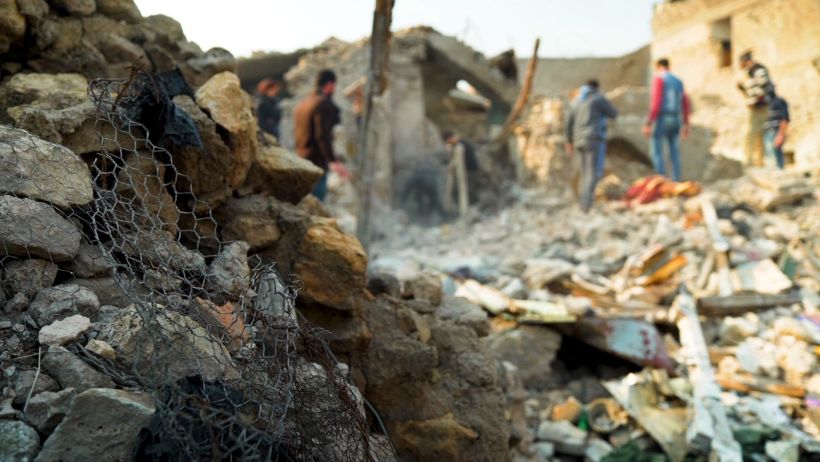Story highlights
Iraqi Federal Police deny unlawful killings in Mosul operation
Amnesty says killings, torture could amount to war crimes
Rights group Amnesty International has accused men in Iraqi police uniforms of torture and unlawfully killing villagers “in cold blood,” in the operation to liberate the city of Mosul from ISIS control.
Amnesty said in a statement Thursday that up to six people were extrajudicially executed in late October, apparently due to suspicions they had ties to the ISIS militant group.
“Men in Federal Police uniform have carried out multiple unlawful killings, apprehending and then deliberately killing in cold blood residents in villages south of Mosul. In some cases the residents were tortured before they were shot dead execution-style,” said Lynn Maalouf, Deputy Director for Research at Amnesty International’s regional office in Beirut.
“Deliberately killing captives and other defenseless individuals is prohibited by international humanitarian law and is a war crime,” Maalouf added, calling for an immediate investigation.
The Iraqi Federal Police have denied any involvement in unlawful killings in the Mosul operation, affirming their commitment to protecting civilians.
MOSUL: ISIS seizing boys as young as 9 to fight
Around 100,000 people have been involved in an Iraqi-led coalition to free Mosul, which was launched on October 17 and involved a push toward the city through villages, where forces clashed with ISIS fighters.
‘Did not pose a threat’
Amnesty gathered evidence of the alleged killings on a visit to villages south of Mosul in the al-Shura and al-Qayyara sub-districts.
It said that around 10 men and a 16-year-old boy, most from the villages of Na’na’a and al-Raseef, were tortured and ill-treated after they handed themselves over to a small group of men wearing Federal Police uniforms on October 21 in an area known as Nus Tal.
“They had waved a white cloth and lifted their shirts to show that they were not wearing explosive belts and did not pose a threat,” the statement said.
The statement explained that the area had been largely abandoned and that it appeared Iraqi forces assumed anyone left behind was an ISIS militant.
The Iraqi Federal Police said in a statement: “The Command of the Federal Police Forces deny what was reported in the Amnesty International statement and deny its accusations against our units of committing the crime of murdering civilians in the al-Shoura area or elsewhere.
“The Command of the Federal Police Forces affirms its total commitment to the orders given by the General Commander of the Armed Forces and the Joint Operations plan, and its adherence to the humanitarian values and principles to protect civilians and their property.”
That statement said the police offered civilians “all possible assistance during the operations to liberate the areas south of Mosul and to cleanse these areas from the clutches of the terrorist organization.”
Corpses found
Amnesty claimed that the men were taken on foot to an open desert area where the uniformed men beat them “with cables and rifle butts, punched and kicked them, and pulled their beards – even setting one man’s beard alight.”
The victims were made to lie on their stomachs and shots were fired between their legs as they were insulted and accused of being ISIS members, Amnesty said, adding the uniformed men used “sectarian language” at the time.
All those killed were buried without autopsies after their corpses were found, the statement said.
Mosul: Iraqi-led forces push into key city
Amnesty made similar allegations in May against “men in uniform” during the operation to retake the city of Falluja, claiming at least 16 men and boys from were shot dead by “fighters,” some of whom in Federal Police uniforms.
Officials and analysts have raised concerns about sectarian violence in the Mosul operation. The coalition involved in freeing the city includes an array of religious and ethnic groups, many of which have stood on opposing sides throughout Iraq’s history, some with a record of sectarian violence.























































































